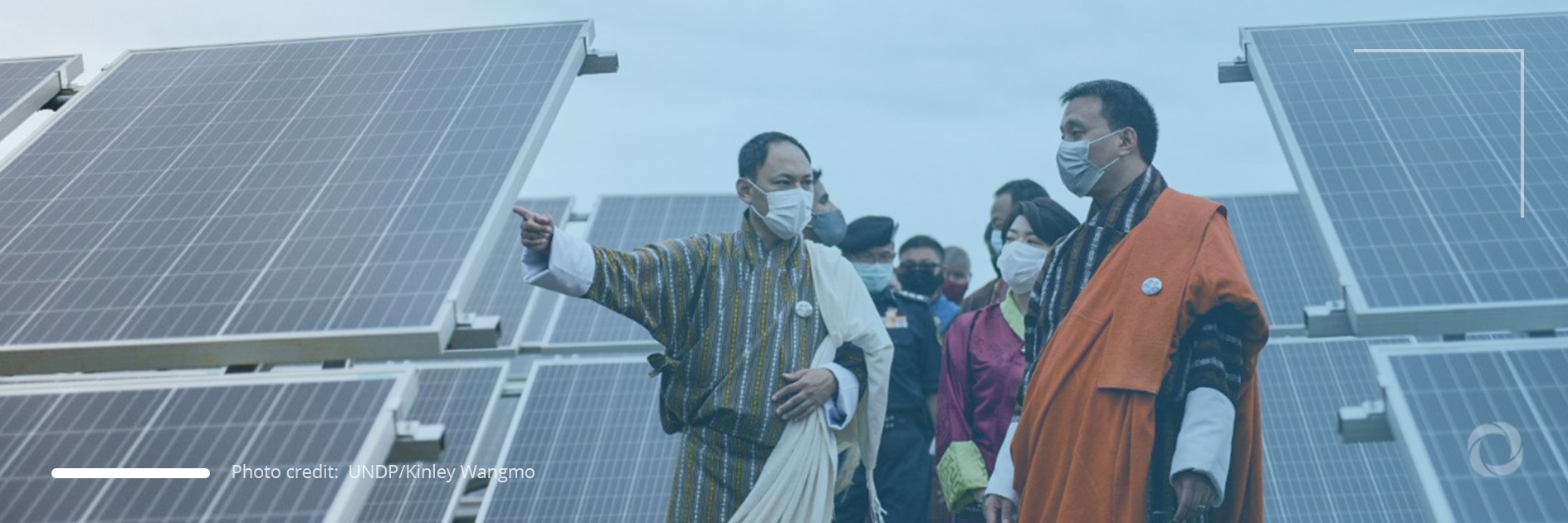While the COVID-19 pandemic pushes the world towards an unsustainable path that demands corrective measures through green recovery, on October 4, Bhutan inaugurated the 180-kW grid-tied ground-mounted solar photo-voltaic power plant to achieve energy security through a diversified and sustainable energy supply mix.
The initiative that demonstrates the viability of solar power plants on a utility-scale is expected to create systems change and support Bhutan in building the resilience of its energy sector to the adverse impacts of climate change. It also aims to build the capacity of the national workforce on solar photovoltaic technology for green employment and opportunities for entrepreneurship.
Stating that any significant impact on glaciers would ultimately have an effect on the hydrological regime of the country which may, in turn, affect hydropower generation, Lyonpo Tashi Dorji, Chairperson at National Council of Bhutan, remarked:
“Harnessing and investing in renewable energy is key to sustainable development and clean energy future.” It is timely that we are accelerating the harnessing of solar energy and other renewables to have a healthy mix of energy supply from various renewable energy sources, he added.
Satoshi Suzuki, the Ambassador of Japan to Bhutan, voiced hope that the solar project would help to enhance Bhutan’s energy security which is essential for the socio-economic development of the country.
Azusa Kubota, UNDP Resident Representative for Bhutan, said that UNDP sees renewable energy solutions as a lifeline to save the planet and humanity and that it must be an integral part of every nation’s green recovery effort from the COVID-19 pandemic.
“The recently held UN-led high-level dialogue on energy was a clear reflection of this growing realization that the pandemic must be used as an opportunity to build back better and greener,” she added.
Phuntsho Namgyal, the Director of the Department of Renewable Energy of Bhutan, said that solar power has been equated to a subsistence level substitute for kerosene lamps in rural communities across the country.
“Bhutan generates all its electricity from renewables, yet it hides a paradox. Approximately, 78 % of our energy consumption is fossil fuel because our transportation system is dependent on it, including cooking and heating needs,” he added.
Project activities
- The project, which was completed within seven months despite delays caused by the pandemic, was funded by the Government of Japan and supported by United National Development Programme (UNDP)
- The US$210,000 project was executed by the Department of Renewable Energy (DRE) in collaboration with the Bhutan Power Corporation (BPC) as the implementing agency
- The project activities including the design, construction, installation, and grid integration were carried out by local workforce
- The experienced and trained personnel from the project are expected to form a key group of professionals who will take on upcoming renewable energy utility level projects
Electricity in Bhutan is generated mostly from hydropower. Additionally, sun is a generous resource that Bhutan can tap into to produce renewable energy to keep its carbon neutrality commitments. The launch of the power plant marks the beginning of Bhutan’s investment in grid-tied solar energy. It is anticipated to be a viable alternative energy source in the face of increasing domestic demand and climate change.

